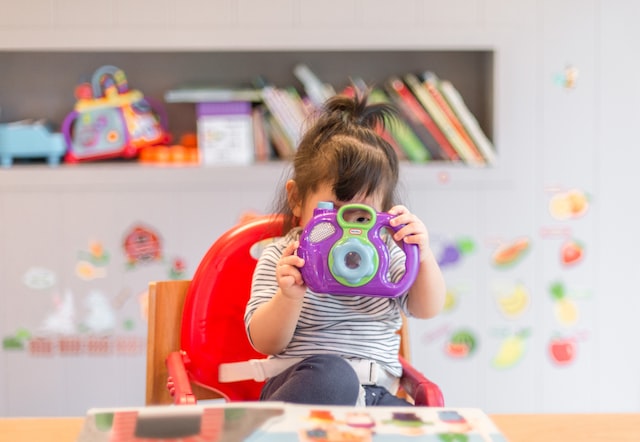The importance of good children’s oral hygiene cannot be overstated. Good oral hygiene habits established in childhood can have a lasting impact on a child’s overall health and well-being. Poor oral hygiene, on the other hand, can lead to a range of problems, including tooth decay, cavities, and gum disease, and even impact a child’s self-esteem and confidence. As a parent or caregiver, it’s important to encourage good oral hygiene habits in your children from an early age and to provide the tools and resources they need to maintain good oral health.
How To Encourage Good Oral Hygiene In Children
One of the key ways to encourage good oral hygiene in children is to make teeth brushing fun. Children are more likely to engage in activities that they enjoy, so finding ways to make teeth brushing an enjoyable experience can go a long way in promoting good oral hygiene habits. This could include using fun toothbrushes, toothpaste with a favourite flavour, or even singing a catchy song while brushing.
Using the right toothpaste and tools is also crucial for children’s oral hygiene. Children’s toothpaste should be specially formulated for their developing teeth and should contain the right amount of fluoride to help prevent tooth decay. It’s also important to choose a toothbrush that is appropriate for your child’s age and ability. Children’s toothbrushes should have soft bristles and a small head to make it easier for children to reach all parts of their mouth.
As a parent or caregiver, you play a vital role in promoting good oral hygiene in your children. Setting a good example by brushing your teeth regularly and showing your children how to do it properly can go a long way in encouraging good oral hygiene habits. You can also make brushing your teeth a part of your daily routine, such as brushing your teeth before bedtime or after meals.
The Benefits Of Good Oral Hygiene In Children
Good oral hygiene has a range of benefits for children, including:
Prevention of tooth decay and cavities: Regular teeth brushing and flossing, along with a healthy diet, can help prevent tooth decay and cavities. This is especially important for children, as tooth decay is the most common chronic disease in children.
Improvement of overall health and well-being: Good oral hygiene is essential for overall health and well-being. Poor oral hygiene can lead to a range of health problems, including gum disease, which has been linked to several serious health conditions, such as heart disease, stroke, and even diabetes.
A brighter and more confident smile: Good oral hygiene can lead to a brighter and more confident smile, which can boost a child’s self-esteem and confidence. A healthy smile can also make a child more likely to smile and interact with others, which can have a positive impact on social and emotional development.
Common Oral Hygiene Problems In Children And How To Prevent Them
There are several common oral hygiene problems that can affect children, including:
Tooth decay and cavities: Tooth decay and cavities are caused by bacteria that produce acid that attacks the teeth. To prevent tooth decay and cavities, it’s important to brush your teeth twice a day with fluoride toothpaste and to floss daily. Limiting sugary snacks and drinks can also help prevent tooth decay and cavities.
Gum disease: Gum disease, also known as periodontal disease, is an infection of the gums and surrounding tissues. It’s caused by bacteria that build up on teeth, leading to inflammation and destruction of the gums and surrounding tissue. To prevent gum disease, it’s important to brush your teeth twice a day with fluoride toothpaste, floss daily, and visit the dentist regularly for cleanings.
Teeth grinding (bruxism): Teeth grinding, also known as bruxism, is a common oral hygiene problem in children. It’s usually caused by stress or anxiety and can lead to tooth wear and even tooth loss if left untreated. To prevent teeth grinding in children, it’s important to identify and address the underlying cause of the problem, such as stress or anxiety. A dental splint or mouthguard can also be helpful in protecting the teeth from grinding.
Mouth breathing and dry mouth: Mouth breathing and dry mouth can lead to a range of oral hygiene problems, including bad breath, tooth decay, and gum disease. To prevent these problems, it’s important to encourage your child to breathe through their nose and to drink plenty of water to keep their mouth hydrated. Using a humidifier at night can also help prevent dry mouth.
Dental Visits And Their Importance For Children’s Oral Hygiene
Regular dental visits are an important part of maintaining good oral hygiene in children. The American Dental Association recommends that children see the dentist every six months for regular cleanings and check-ups. These visits allow the dentist to check for any potential problems and to provide the necessary treatment to prevent or address them.
It’s also important to help children feel comfortable at the dentist’s. This can involve talking to them about the visit beforehand and explaining what will happen in a way that they can understand. You can also bring a favourite stuffed animal or toy to the appointment to help your child feel more at ease.
Conclusion
Good oral hygiene is essential for children’s overall health and well-being. By encouraging good oral hygiene habits and providing the right tools and resources, you can help your children maintain healthy teeth and gums and prevent a range of oral hygiene problems. Regular dental visits are also crucial for maintaining good oral hygiene and detecting and preventing any potential problems. By following these recommendations, you can give your children a healthy smile that will last a lifetime.

